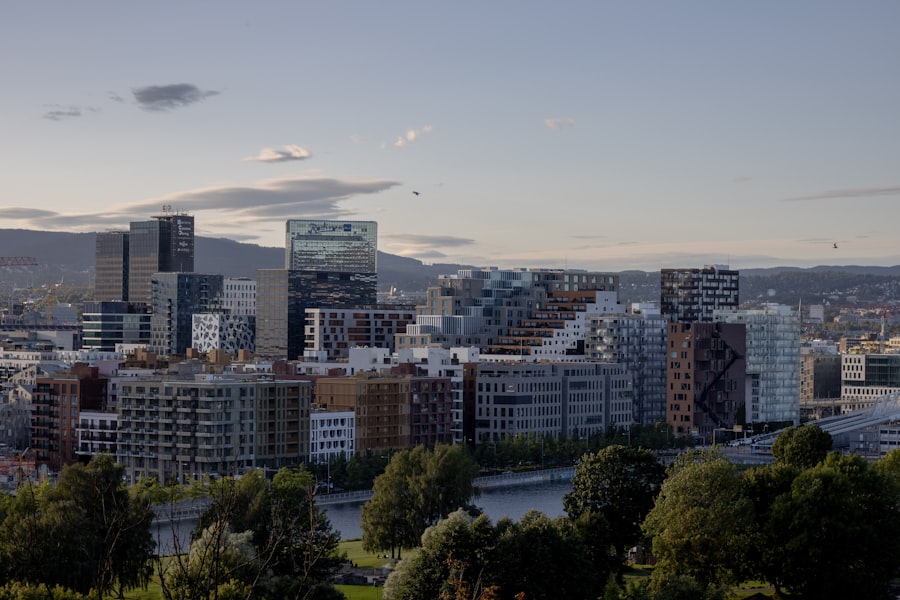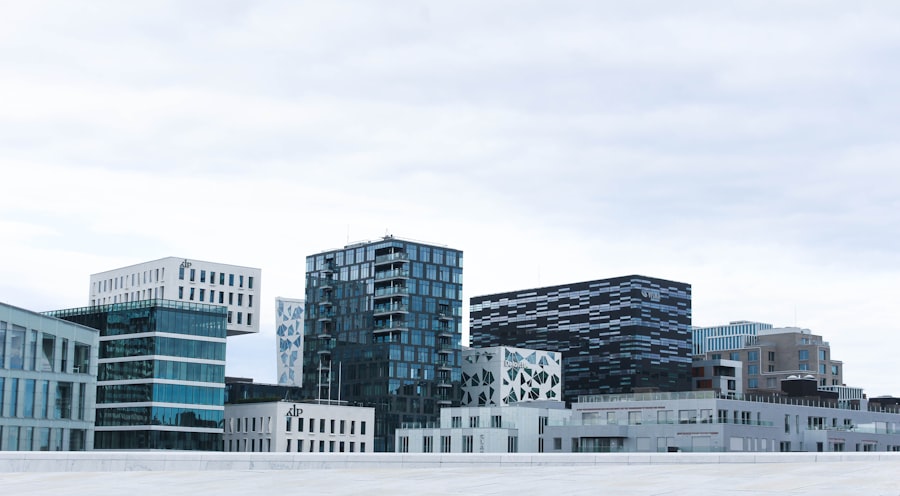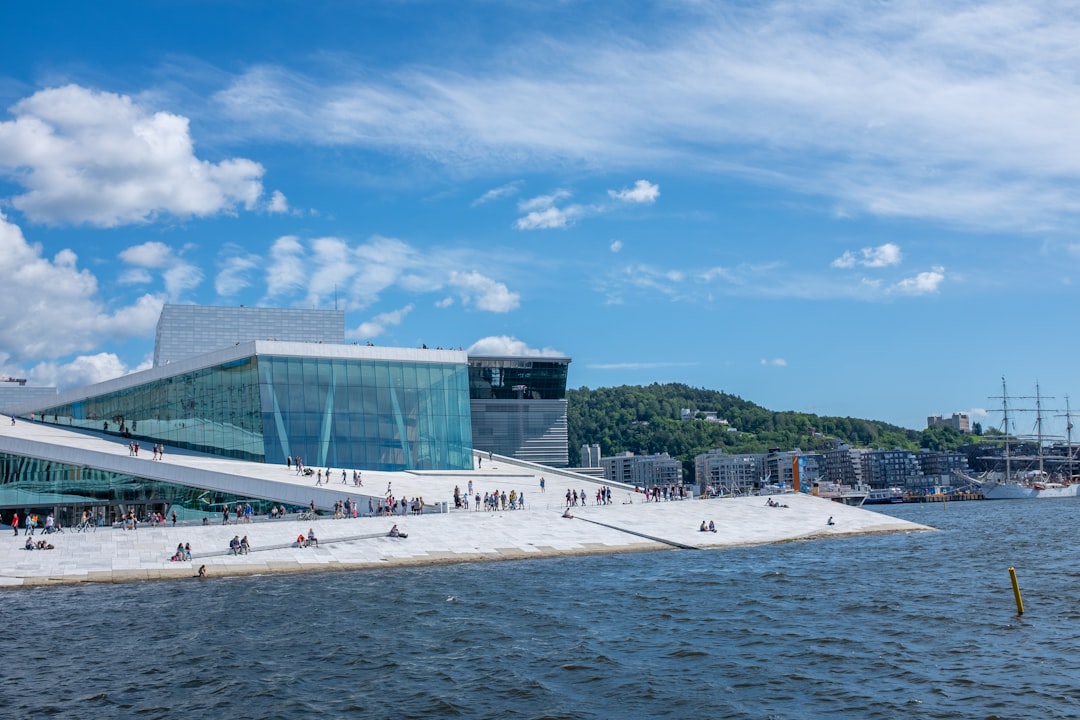Navigating the Norwegian utility system can be a daunting task for newcomers, but it is essential for establishing a comfortable living environment. Norway’s utility framework is characterised by a high level of efficiency and sustainability, reflecting the country’s commitment to environmental responsibility. The system encompasses various services, including electricity, gas, water, sewage, waste management, and telecommunications.
Each of these services operates under specific regulations and standards, ensuring that residents have access to reliable and safe utilities. One of the most notable aspects of the Norwegian utility system is its emphasis on renewable energy sources. A significant portion of the country’s electricity is generated from hydropower, making it one of the most environmentally friendly energy systems in the world.
This commitment to sustainability not only benefits the environment but also contributes to lower energy costs for consumers. Understanding how these utilities function and the options available can help residents make informed decisions about their consumption and service providers. Take the first step. Book a consultation with the Norway Relocation Group for your move to Norway.
Summary
- The Norwegian utility system is highly efficient and reliable, with a strong focus on sustainability and environmental responsibility.
- Setting up electricity and gas services in Norway is a straightforward process, with several providers offering competitive rates and flexible payment options.
- Water and sewage services in Norway are managed by local municipalities, ensuring clean and safe water for all residents.
- Waste management and recycling in Norway is taken seriously, with strict regulations and incentives for recycling and reducing waste.
- Internet and telecommunications providers in Norway offer high-speed and reliable services, with a range of packages to suit different needs and budgets.
Setting Up Electricity and Gas Services
When moving to Norway, one of the first steps is to set up electricity and gas services. The process is relatively straightforward, but it requires some essential documentation, such as identification and proof of residence. In Norway, electricity is supplied by various companies, allowing consumers to choose their preferred provider based on pricing and service quality.
It is advisable to compare different providers to find the best deal that suits your needs. Gas services are less common in Norway compared to other countries, as many households rely on electricity for heating and cooking. However, for those who do require gas, it is typically supplied through a network of pipelines.
Setting up gas services involves contacting the relevant provider and ensuring that all safety regulations are met. It is crucial to be aware of the terms and conditions associated with these services, including any potential fees for installation or maintenance.
Water and Sewage Services in Norway

Water and sewage services in Norway are managed at the municipal level, ensuring that residents have access to clean drinking water and efficient waste disposal systems. The quality of water in Norway is generally excellent, with strict regulations governing its treatment and distribution. Residents can expect their tap water to be safe for consumption without the need for additional filtration or purification.
Sewage services are equally well-managed, with a focus on environmental protection and sustainability. Wastewater treatment facilities are designed to minimise environmental impact while effectively processing sewage. Residents are typically billed for water usage based on consumption, which encourages responsible usage and conservation efforts.
Understanding how these services operate can help residents appreciate the importance of maintaining clean water sources and proper waste management.
Waste Management and Recycling in Norway
Norway is renowned for its commitment to recycling and waste management, making it one of the leading countries in environmental sustainability. The waste management system is designed to minimise landfill use and promote recycling through various initiatives. Residents are encouraged to separate their waste into different categories, such as organic waste, plastics, paper, and general refuse.
This separation not only facilitates recycling but also helps reduce the overall volume of waste produced. Municipalities provide designated bins for each type of waste, making it easier for residents to comply with recycling regulations. Additionally, many cities offer recycling centres where residents can drop off larger items or materials that cannot be disposed of through regular waste collection.
Understanding the local recycling guidelines is crucial for newcomers, as adherence to these practices contributes significantly to Norway’s environmental goals.
Internet and Telecommunications Providers
In today’s digital age, having reliable internet and telecommunications services is essential for both personal and professional life. Norway boasts a robust telecommunications infrastructure, with several providers offering a range of internet packages tailored to different needs. Residents can choose from various options, including fibre-optic connections, DSL, and mobile broadband services.
When selecting an internet provider, it is important to consider factors such as speed, data limits, and customer service. Many providers offer bundled packages that include television and mobile services, which can be a cost-effective solution for households. Additionally, it is advisable to read customer reviews and compare prices before making a decision.
With a little research, residents can find a provider that meets their connectivity needs while ensuring a seamless online experience.
Postal Services and Mailing Addresses

Postal services in Norway are efficient and reliable, with a well-established network that ensures timely delivery of mail and packages. The national postal service, Posten Norge, operates throughout the country, providing various services such as standard mail delivery, express shipping, and parcel tracking. Residents can easily access postal services at local post offices or through automated kiosks found in many urban areas.
When setting up a mailing address in Norway, it is essential to understand the format used for addresses. Typically, an address includes the recipient’s name, street name, house number, postal code, and city. Familiarising oneself with this format will help ensure that mail is delivered accurately and promptly.
Additionally, residents should consider registering for a digital mailbox service that allows them to receive important documents electronically, further streamlining their postal experience.
TV and Cable Services in Norway
Television services in Norway are diverse, with numerous options available for residents seeking entertainment. The country has both public broadcasting channels and private networks that cater to various interests and preferences. The primary public broadcaster is NRK (Norsk Rikskringkasting), which offers a range of programming including news, documentaries, and entertainment shows.
For those interested in cable or satellite television services, several providers offer packages that include international channels as well as on-demand content. It is advisable to compare different packages based on channel selection, pricing, and additional features such as streaming capabilities. Many providers also offer bundled deals that include internet services, making it easier for residents to manage their entertainment needs while potentially saving money.
Home Security and Alarm Systems
Ensuring home security is a priority for many residents in Norway. The country has a relatively low crime rate; however, investing in security measures can provide peace of mind. Various companies offer alarm systems that can be tailored to individual needs, including options for monitoring services that alert authorities in case of emergencies.
When considering home security systems, it is essential to evaluate factors such as installation costs, monthly fees for monitoring services, and the types of equipment provided. Many modern systems also offer smart home integration features that allow homeowners to control their security remotely via smartphone applications. By taking proactive steps towards securing their homes, residents can enhance their safety while enjoying their living spaces.
Home Maintenance and Repair Services
Home maintenance is an integral part of homeownership or renting in Norway. Regular upkeep ensures that properties remain in good condition while preventing costly repairs down the line. Various service providers specialise in home maintenance tasks such as plumbing, electrical work, carpentry, and general repairs.
Residents should consider establishing relationships with reliable contractors who can assist with routine maintenance as well as emergency repairs. Online platforms often provide reviews and ratings for local service providers, making it easier to find trustworthy professionals. Additionally, many municipalities offer resources or workshops on home maintenance topics that can empower residents with knowledge about caring for their properties effectively.
Emergency Services and Contacts
In case of emergencies, knowing how to access emergency services is crucial for all residents in Norway. The country has a well-organised emergency response system that includes police, fire services, and medical assistance. The emergency number for all services is 112; however, it is advisable to familiarise oneself with local contacts for non-urgent situations as well.
Residents should also be aware of local hospitals and clinics in their area for medical emergencies or routine healthcare needs. Many municipalities provide information on available healthcare facilities through their websites or community centres. Understanding how to navigate these emergency services can significantly enhance safety and preparedness in unforeseen situations.
Tips for Saving Money on Utilities in Norway
Living in Norway can be expensive; however, there are several strategies residents can employ to save money on utilities without sacrificing comfort or convenience. One effective approach is to monitor energy consumption closely by using smart meters or energy monitoring apps that provide insights into usage patterns. This awareness allows residents to identify areas where they can reduce consumption.
Additionally, taking advantage of off-peak electricity rates can lead to significant savings on energy bills. Many providers offer lower rates during specific hours; thus scheduling high-energy tasks like laundry or dishwashing during these times can be beneficial. Furthermore, investing in energy-efficient appliances can lead to long-term savings by reducing overall energy consumption while contributing positively to environmental sustainability.
For those looking to learn more about managing utilities effectively while living in Norway or even mastering the Norwegian language itself, enrolling in courses at the NLS Norwegian Language School in Oslo could be an excellent option. The school offers comprehensive Norwegian courses tailored for various proficiency levels—whether you are a complete beginner or looking to refine your skills further. By improving your language abilities at NLS Norwegian Language School, you will not only enhance your understanding of local customs but also gain valuable insights into navigating everyday life in Norway more efficiently.
In conclusion, understanding the Norwegian utility system is essential for anyone looking to settle in this beautiful country. By familiarising oneself with electricity and gas services, water management systems, waste disposal practices, telecommunications options, postal services, home security measures, maintenance needs, emergency contacts, and money-saving tips on utilities—residents can create a comfortable living environment while embracing the unique aspects of Norwegian life.
Learn more about the Norwegian classes at the NLS Norwegian Language School in Oslo

